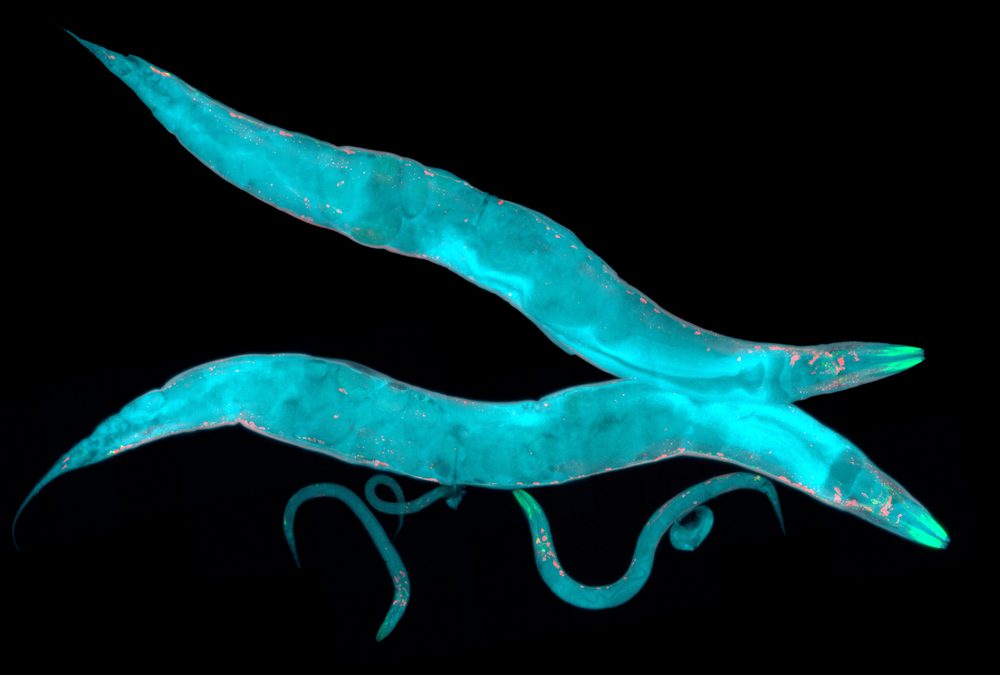The average global life expectancy was 72.6 years in 2019. This value has soared in recent decades; for example, the average worldwide life expectancy in 1950 was only 48 years. Most of this increase is credited to vast improvements in public health. But scientists are not content with the status quo and are looking into ways that human longevity can be further advanced. Research into increasing longevity includes manipulating genes in animals to discover how they affect lifespan. Scientists seek other effects these genes may have when expressed, and what potentially harmful ones might come from modifying them.
Researchers at the University of Pittsburgh are exploring the longevity of C. elegans when a gene called TCER-1 is modified. The presence of the gene is critical to the production of eggs and increases the life span of the worms. The researchers disabled the gene and observed the results. They knew that genes that increase lifespan also tend to help the organism deal with stresses, such as pathogens, so the researchers expected to see an increase in the rates of infection of the modified worms. However, they observed exactly the opposite: the worms that had the disabled gene fought off an infection for twice as long as those without. The C. elegans without TCER-1 were also more resistant to the negative impacts of other stressors, like heat and radiation.
To further test the effects of the gene, the research team modified some worms to increase production of the protein from TCER-1. In this scenario, the rate of infection of the worms increased as expected, but since fertility also increased, the reproductive boost compensated for the increased losses to disease. This increase in reproductive power seems to come from TCER-1 diverting resources from immune response into fertility.
There is still more work to be done in understanding the methods the TCER-1 protein uses to affect stress responses and regulate fertility. While humans also have a version of TCER-1, it is not expected that this line of research will lead to any development in human health improvements in the near future. However, the research may serve as a caution to those seeking anti-aging genetic therapies: a decreased ability to deal with stress and infection are a potential trade-off for increased longevity.
For studies involving C. elegans, Powers Scientific’s refrigerated incubators offer a flexible growth environment. While the worms can be maintained anywhere between 16°C and 25°C, C. elegans growth rate is temperature-dependent (they grow faster at warmer temperatures), so the storage temperature must be used as a variable when planning experiments. Our versatile chambers can be adapted to create environments requiring vibration resistance, complete darkness, intense lighting, or a combination of variables. The chambers have a 2-50°C temp range, easily capable of maintaining any temperature needed to maintain C. elegans stocks. The chambers also have options for lighting control (with solid doors and clock-controlled lights) or additive humidity generation, if desired.
For more information about our refrigerated incubators or to request a quote, visit our Contact Us page or call us at (800) 998-0500.

